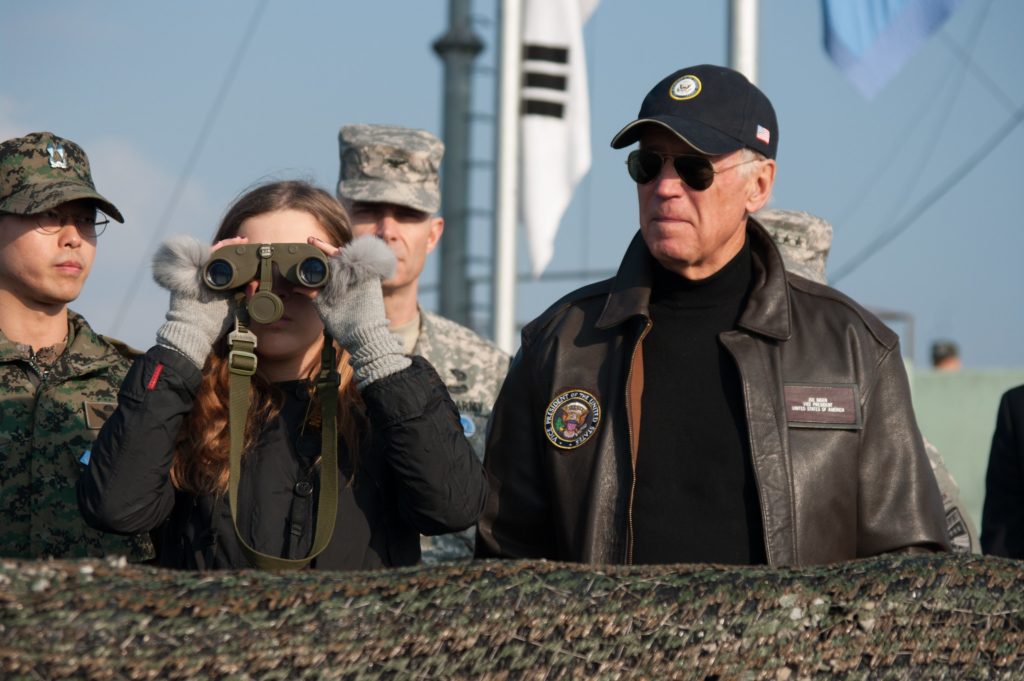The Peninsula
2021 in Review: The Biden Administration’s North Korea Policy

This is the second in a 10 part series looking at how the issues identified in KEI’s annual “10 Issues to Watch for on the Korean Peninsula” series developed in 2021. The original “10 Issues” piece can be found here.
Although it is commonly understood that the Biden Administration carried out a policy review regarding North Korea after coming to office, the results were not made public and we had to rely on a few, key phrases during 2021 to interpret the policy. The words “careful, calibrated approach” have been used by Administration officials. President Biden said during his press conference with President Moon in May that his “ultimate goal” regarding North Korea is denuclearization, implying that it is not an imminent goal. Secretary of State Blinken added on December 14, 2021, that the United States “seeks serious and sustained diplomacy with the DPRK.” Special Envoy Sung Kim has said several times that the Biden Administration is willing to meet with North Korean representatives, “anytime, anywhere, without preconditions.”
It has been made clear that the Biden Administration’s openness to dialogue would not involve a Trump-style summit between President Biden and Kim Jong-un unless there had been substantive and successful preparation by lower-level officials. The top-down approach was found wanting when the agreement that appeared to have been teed up at their 2018 Singapore Summit by President Trump and Kim Jong-un failed to materialize at their 2019 Hanoi Summit.
The three main developments regarding diplomacy towards North Korea in 2021 were: (1) North Korea’s self-imposed COVID quarantine reducing external trade more than international sanctions ever could, rendering the debate over the effectiveness of sanctions moot for the time being; (2) North Korea’s non-responsiveness to U.S. and South Korean diplomatic overtures while at the same time foregoing nuclear or long-range missile testing; and (3) South Korea’s strong push for an ‘end of war declaration,’ in the hope that it might lead to a resumption of diplomacy. The Biden Administration appears to have judged that North Korea is unwilling to negotiate for the time being, perhaps because it is preoccupied with the internal problems of its stringent anti-COVID measures and faltering economy. The door is open but not much will happen until North Korea decides that it is time to talk.
Mark Tokola is the Vice President of the Korea Economic Institute of America. The views expressed here are his own.
Image from UNC-CFC-USFK’s photostream on flickr Creative Commons.
